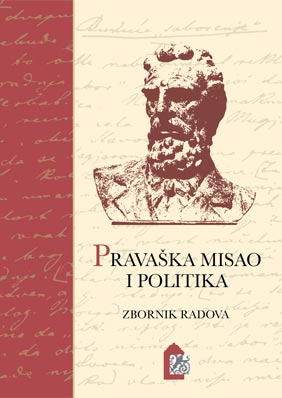Između starog i modernog pravaštva
‘Modern Rightism ’ – The Modernization of the Party of Right
Author(s): Stjepan Matković
Subject(s): Politics / Political Sciences, Politics, History, Political history, Modern Age, 19th Century, Between Berlin Congress and WW I
Published by: Hrvatski institut za povijest
Summary/Abstract: This paper examines the changes which took place in the Party of Right’s approach at the end of the 19th century. The appearance of new leaders in the party (J. Frank and his collaborators) and the gradual departure of the older generation, above all A. Starčević, brought about certain changes in the tactics of the Rightists. The Party of Right’s change in direction was influenced by forces outside of the party: the constitutional system created by the Croat-Hungarian Agreement of 1868, the crisis of Dualism, the situation in the Croatian opposition, and the change in foreign policy direction.
The term ‘modern Rightism’ was first coined by opponents of the Party of Right, who wanted to belabour the new Rightists with blame for divesting themselves of authentic Starčevićism. Modern Rightism certainly transformed its approach, but not in a negative sense. Its proponents accepted modernization in the political field, and tailored their political tactics to developments in Austria-Hungary. Political modernization meant setting up an organized party structure and accepting the challenges posed by the democratization of the political system. This set in motion a reciprocal process, because while democratization created the possibility for mass parties, the creation of such a party also necessitated good organization (administration, programme, statutory documents, membership, regular financial support, promotion, a network of associations, etc.). Nevertheless, adherents of modern Rightism remained faithful to the traditions of Rightist ideology established on the basis of furthering Croatian State Right and Croatian national identity. Modern Rightists (mostly followers of J. Frank, or Frankists), supported the solution of the Croatian national question within the Habsburg Monarchy, because they estimated that within its framework they could realize specific political aims and enable the economic development of Croatia.
Book: Pravaška misao i politika
- Page Range: 125-141
- Page Count: 17
- Publication Year: 2007
- Language: Croatian
- Content File-PDF

